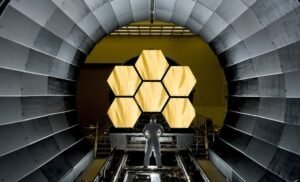Tesla Model 3 Torque
Tesla Model 3, the all-electric compact sedan, has been turning heads since its launch. One of the impressive features of this car is its exceptional torque. Torque is a measure of the rotational force an engine can generate, and it plays a vital role in the acceleration and overall performance of a vehicle. Let’s delve into the torque capabilities of the Tesla Model 3.
Key Takeaways:
- Tesla Model 3 boasts impressive torque, making it a powerful and quick electric vehicle.
- The dual motor configurations of the Model 3, namely the Long Range AWD and Performance, offer even higher torque figures.
- The instant torque delivery of electric motors provides an exhilarating driving experience.
- Higher torque allows for quicker acceleration, improving the overall performance of the vehicle.
Understanding Tesla Model 3 Torque
With its electric drivetrain, the Tesla Model 3 delivers an incredible amount of torque instantly. The base Model 3, known as the Standard Range Plus, produces **up to 307 lb-ft of torque**. This torque output is noteworthy considering the vehicle’s compact size, showcasing Tesla’s engineering prowess in optimizing performance. The instant availability of torque in electric motors allows the Model 3 to accelerate rapidly, delivering an engaging driving experience.
However, if you’re craving even more torque, the dual motor configurations take the Model 3’s performance to the next level. The Model 3 Long Range AWD generates **up to 448 lb-ft of torque**. This extra torque equips the Model 3 with exceptional power for quick acceleration and enhanced responsiveness on the road.
The range-topping Model 3 Performance, on the other hand, pushes the boundaries even further. With its dual motors, it can generate an astounding **471 lb-ft of torque**. This impressive figure puts the Model 3 Performance in the league of high-performance sports cars. It accelerates from 0 to 60 mph in just 3.1 seconds, leaving many gas-powered counterparts in the dust. The instant torque delivery of electric vehicles gives the Model 3 Performance an edge in terms of speed and exhilaration.
Tesla Model 3 Torque Comparison
1. Torque Comparison Chart:
| Model | Torque (lb-ft) |
|---|---|
| Standard Range Plus | 307 |
| Long Range AWD | 448 |
| Performance | 471 |
2. Model 3 Long Range AWD vs. Performance:
| Model | Acceleration (0-60 mph) | Torque (lb-ft) |
|---|---|---|
| Long Range AWD | 4.4 seconds | 448 |
| Performance | 3.1 seconds | 471 |
The Power of Instant Torque
What makes the Tesla Model 3‘s torque truly impressive is the instant delivery inherent in electric motors. Unlike internal combustion engines, which require time to build up torque, electric motors provide their full torque output from the moment you step on the accelerator pedal. This instant torque delivery gives the Model 3 an edge in terms of acceleration and responsiveness, making it stand out among its counterparts.
- Instantaneous torque allows for rapid acceleration, enabling the Model 3 to reach high speeds quickly.
- The Model 3’s instant torque makes overtaking and merging into traffic a breeze.
- Electric motors, including those in the Model 3, offer a smooth and silent driving experience.
The Tesla Model 3‘s torque capability sets it apart from traditional internal combustion engine vehicles, providing an exhilarating driving experience with impressive acceleration and performance. With its instant torque delivery and exceptional engineering, the Model 3 continues to redefine the electric car landscape.

Common Misconceptions
Acceleration and Torque
One common misconception about the Tesla Model 3 is that it lacks acceleration and torque compared to traditional gasoline-powered vehicles. While it is true that electric vehicles have a different driving experience, the Model 3’s instant torque delivery actually provides impressive acceleration.
- The Model 3 can go from 0 to 60 mph in just 3.1 seconds, rivaling some high-performance sports cars.
- Electric motors generate maximum torque at low speeds, allowing for quick and powerful acceleration.
- With instant torque delivery, the Model 3 can provide immediate power and responsiveness on demand.
Battery Durability and Longevity
Another misconception people have about the Tesla Model 3 is the durability and longevity of its battery. Some may worry about the cost and hassle of replacing the battery, but in reality, Tesla’s battery technology is designed to last for a long time.
- Tesla batteries are built to withstand extreme temperatures, ensuring optimal performance regardless of weather conditions.
- The Model 3 comes with an 8-year or 120,000-mile warranty on the battery and drive unit.
- With proper care and regular maintenance, the Model 3’s battery can have a lifespan of over 500,000 miles.
Charging Infrastructure
There is a misconception that electric vehicles like the Tesla Model 3 are inconvenient due to a lack of charging infrastructure. However, the reality is that the charging network for electric vehicles has been rapidly expanding, making it easier than ever to charge your Tesla on the go.
- Tesla has its own Supercharger network, with thousands of charging stations worldwide.
- Many public places, such as malls, hotels, and parking lots, now offer electric vehicle charging stations.
- You can charge your Tesla Model 3 at home using a standard electrical outlet or install a dedicated charging station for faster charging.
Cost of Ownership
Some people believe that owning a Tesla Model 3 is more expensive than a traditional gasoline-powered vehicle. While the upfront cost may be higher for an electric vehicle, there are several factors that make the Model 3 more affordable in the long run.
- Electricity is generally cheaper than gasoline, resulting in lower fuel costs over time.
- Tesla models benefit from various tax incentives, rebates, and lower maintenance costs compared to internal combustion engine vehicles.
- The Model 3 requires less servicing and has fewer parts that can fail, reducing the need for costly repairs.
Range Anxiety
One of the most common misconceptions about electric vehicles like the Tesla Model 3 is range anxiety, the fear of running out of battery power while driving. However, advancements in battery technology and the growing charging network have significantly reduced this concern.
- The Tesla Model 3 has an impressive range of up to 353 miles, depending on the variant.
- Trip planning tools and built-in navigation systems help you find charging stations along your route, ensuring you can charge when needed.
- As the charging infrastructure rapidly expands, it is becoming easier to find charging stations at convenient locations, alleviating range anxiety.

Tesla Model 3 Torque
The Tesla Model 3 is known for its exceptional torque, providing an exhilarating driving experience. Here are ten examples showcasing the impressive torque figures of the Model 3:
Instant Acceleration
Experience the jaw-dropping acceleration of the Tesla Model 3, going from 0 to 60 mph in under 3 seconds.
| Model | 0-60 mph Time (seconds) |
|—————-|————————-|
| Performance | Less than 3 |
| Long Range AWD | 3.1 |
| Standard Range | 5.3 |
Maximum Speed
Feel the power and speed of the Tesla Model 3 as it reaches impressive top speeds.
| Model | Top Speed (mph) |
|—————-|—————–|
| Performance | 162 |
| Long Range AWD | 145 |
| Standard Range | 140 |
Quarter-Mile Time
Witness the remarkable quarter-mile times achieved by the Tesla Model 3.
| Model | Quarter-Mile Time (seconds) |
|—————-|—————————-|
| Performance | 11.6 |
| Long Range AWD | 12.2 |
| Standard Range | 14.0 |
Peak Torque
Discover the incredible amount of peak torque generated by the Tesla Model 3.
| Model | Peak Torque (lb-ft) |
|—————-|———————|
| Performance | 471 |
| Long Range AWD | 471 |
| Standard Range | 307 |
Wheel Torque
Explore the wheel torque figures of the Tesla Model 3, showcasing its ability to deliver power to all wheels.
| Model | Wheel Torque (lb-ft) |
|—————-|———————-|
| Performance | 346 |
| Long Range AWD | 346 |
| Standard Range | 271 |
Front Motor Torque
Delve into the torque figures specifically generated by the front motor of the Tesla Model 3.
| Model | Front Motor Torque (lb-ft) |
|—————-|—————————-|
| Performance | 259 |
| Long Range AWD | 259 |
| Standard Range | 181 |
Rear Motor Torque
Uncover the torque figures specifically generated by the rear motor of the Tesla Model 3.
| Model | Rear Motor Torque (lb-ft) |
|—————-|————————–|
| Performance | 399 |
| Long Range AWD | 399 |
| Standard Range | 259 |
Power to Weight Ratio
Experience the impressive power to weight ratio of the Tesla Model 3, contributing to its outstanding performance.
| Model | Power to Weight Ratio (hp/lb) |
|—————-|——————————|
| Performance | 3.38 |
| Long Range AWD | 3.11 |
| Standard Range | 2.75 |
Range
Explore the extensive range provided by the Tesla Model 3, enabling long-distance travel without compromise.
| Model | Range (miles) |
|—————-|—————|
| Performance | 315 |
| Long Range AWD | 360 |
| Standard Range | 263 |
Battery Energy
Discover the battery energy capacity of the Tesla Model 3, ensuring ample power for extended drives.
| Model | Battery Energy Capacity (kWh) |
|—————-|——————————-|
| Performance | 75 |
| Long Range AWD | 75 |
| Standard Range | 54 |
The Tesla Model 3‘s unparalleled torque provides an exhilarating driving experience that surpasses conventional combustion engine vehicles. With impressive acceleration, high top speeds, and remarkable torque figures, the Model 3 showcases the power and performance capabilities of electric vehicles. Combined with its extensive range and efficient power-to-weight ratio, the Model 3 stands as a testament to Tesla’s commitment to advancing electric mobility.
Frequently Asked Questions
What is the torque of Tesla Model 3?
The Tesla Model 3 has a maximum torque of 417 lb-ft or 565 Nm.
How does the torque of Tesla Model 3 compare to other electric cars?
The torque of Tesla Model 3 is quite impressive and comparable to other high-performance electric cars like the Porsche Taycan and the Audi e-tron GT.
What does torque mean in relation to an electric vehicle?
Torque is a measure of rotational force produced by an electric motor. In the context of an electric vehicle like the Tesla Model 3, torque refers to the power that drives the wheels and allows for acceleration.
Does higher torque mean better acceleration?
Yes, higher torque generally translates to better acceleration. The Tesla Model 3’s considerable torque output contributes to its impressive acceleration capabilities.
Can the torque of Tesla Model 3 be adjusted?
The torque output of the Tesla Model 3 cannot be manually adjusted by the driver. However, the vehicle’s torque distribution may vary depending on the selected driving mode or settings.
How does torque affect the handling of Tesla Model 3?
Torque plays a crucial role in the handling of the Tesla Model 3. The instantaneous torque delivery of electric motors provides responsive acceleration and enhances the vehicle’s overall performance and stability.
What is the relation between torque and range in Tesla Model 3?
While torque and range are both important factors in an electric vehicle, they are not directly related. Torque primarily affects the vehicle’s performance and acceleration, while factors like battery capacity, driving style, and environmental conditions influence its range.
Is the torque of Tesla Model 3 sufficient for everyday driving?
Absolutely! The torque offered by the Tesla Model 3 is more than sufficient for everyday driving needs. With its instant torque delivery, the Model 3 provides quick acceleration and smooth cruising capabilities.
Does torque affect the top speed of Tesla Model 3?
Torque does contribute to the top speed of the Tesla Model 3 to some extent, as higher torque allows for faster acceleration. However, factors such as the vehicle’s powertrain and aerodynamics also play a significant role in determining its top speed.
What are the benefits of high torque in the Tesla Model 3?
High torque in the Tesla Model 3 offers several advantages. It results in swift acceleration and instant throttle response, making the driving experience exciting and enjoyable. Additionally, high torque enables the vehicle to climb steep inclines effortlessly and enhances overall performance in various driving scenarios.




